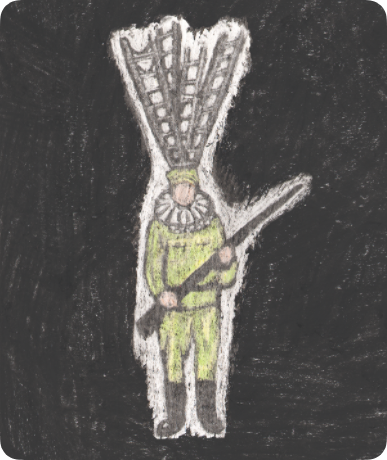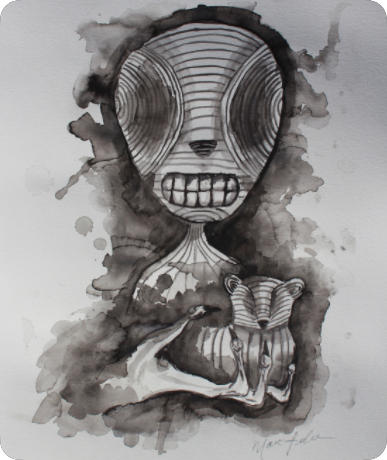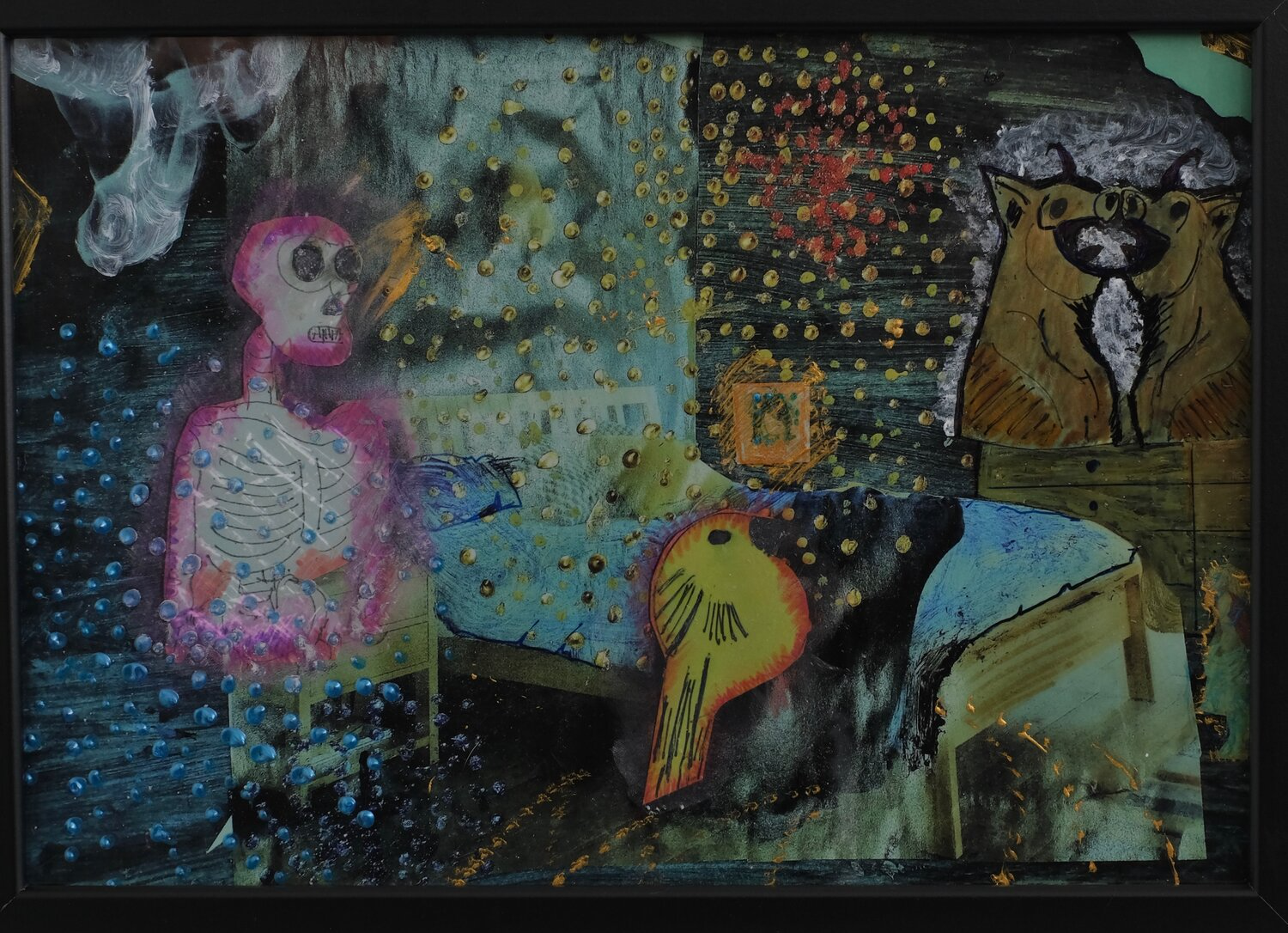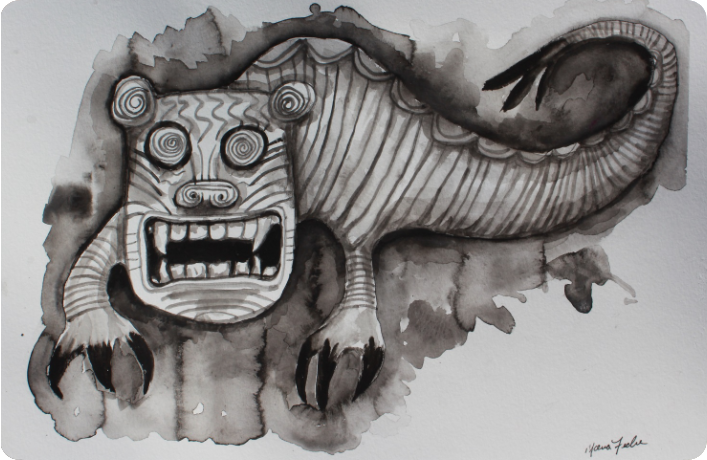Firstly, what can make it worse?
-
Isolation
Isolation can worsen CBS symptoms as reduced social interaction and sensory stimulation might lead to an increased focus on hallucinations and heightened feelings of distress.
-
Stress
Stress can amplify CBS experiences by triggering the brain to create more vivid and frequent hallucinations in response to heightened emotional states.
-
Medication for other conditions
Urinary incontinence medication (Oxybutynin),
Anti-cholinergic eye drops (Atropine eye drops),
Tricyclic antidepressants (Amitriptyline),
Proton pump gastric ulcer medication (Lansoprazole),
Synthetic opiates (Tramadol) -
Fever
Fever can intensify CBS symptoms as the body’s elevated temperature can impact neural activity and sensory processing, potentially leading to heightened visual hallucinations.
-
Hyponatremia
Hyponatremia, an electrolyte imbalance characterised by low sodium levels in the blood, can worsen CBS by affecting brain function and neural signaling.
What to do when symptoms start
Not everyone with Charles Bonnet Syndrome needs treatment for the hallucinations. Once you know that the hallucinations can be a normal consequence of visual loss and that there are things you can do yourself that might help stop the hallucinations when they occur or reduce their impact, for most people this will be all that is required. However, before using self-help techniques, it is important to confirm you have Charles Bonnet Syndrome and rule out other factors that might be contributing to the symptoms.
There is no test for Charles Bonnet Syndrome so your doctor needs to think about whether other possibilities apply to you. The current recommendations are that your doctor thinks about physical health conditions that can cause hallucinations (for example infections), whether your eye condition can be improved (for example cataract surgery or macular disease treatment if you have these conditions) and for those over 60 years old, early memory problems. This may involve referral to a specialist service to advise.
Your doctor also needs to think about medications you are taking for other reasons that may be making the hallucinations worse and whether they can be changed or reduced in dose. The main medications we know that might make CBS worse are listed here (Culprit medication link).
Please contact your GP before using any complementary therapies and only stop taking medication when you have discussed this with your doctor.
Medications that are based on evidence from clinical trials or published case reports.
This selection of medications are backed by clinical trials and documented case reports. These options provide a potential avenue to alleviate distressing experiences, but consultation with a medical professional is important to determine the right approach for your individual needs.
-
Anti-convulsant (like Gabapentin)
-
Cholinesterase inhibitor (like Donepezil)
-
SSRI (like Citalopram)
-
Anti-psychotic (like Risperidone) – not suitable for older patients
-
Chinese traditional medicine (like Yi-Gan-San)
Self-help techniques and coping
strategies anyone can use
These strategies, suggested by fellow CBS individuals, might offer relief, although results can vary. Additionally, individuals have reported symptom relief through certain medications or complementary approaches. While effectiveness varies, we can’t assess suitability for all due to limited medical context. Note that medications with published case reports or clinical trials carry more robust evidence.
CBS hallucinations often arise during moments of quiet wakefulness or specific scenarios like pre-sleep and post-sleep stages, seated positions, or car rides. Identifying trigger situations can guide avoidance tactics.
-
Change whatever it is you are doing at that moment – e.g. turn off/on the television/radio/music
-
If sitting, try standing up and walking round the room. Or the reverse
-
Walk into another room or another part of the room
-
Eye movement exercise (see below)
-
Change the light level in the room. It might be that the dim light is causing the hallucinations. If so, turn on a brighter light – or vice versa
-
Reach out to the hallucination. Try to touch it or sweep your hand to brush away the image
-
Clap your hands or click your fingers
-
Shine a torch upwards from below your chin in front of your eyes – not into the eyes
-
Turn your head slowly to one side and then the other. Dip your head to each shoulder in turn
-
Stare straight at the hallucinations
-
Try singing or whistling
-
Use a very thick eye mask to try and stop the hallucinations
-
Blink your eyes once or twice.
-
People with CBS have reported that Prochlorperazine helped their symptoms
-
Omega 3 has helped reduce hallucinations in people with CBS
-
CBD oil has helped people with CBS alleviate their symptoms
-
Ginger has helped people who suffer with CBS
-
Guided meditation can be good coping strategy
-
Yoga can help alleviate symptoms of CBS
-
Counselling is helpful for people with CBS
-
Group Therapy can be a supportive environment to deal with CBS
Professor ffytche’s specific eye movement exercise
When the hallucination starts, look from left to right about once every second for 15 seconds, without moving your head. If the hallucination continues, have a rest for a few seconds and then repeat the eye movements. You may need four or five repeats of the eye movements to have an effect but there is no point in continuing beyond this if there is no benefit.
Esme’s Friends
These are support groups hosted by local low vision charities or the RNIB. They offer people who live with Charles Bonnet Syndrome – and their families – the chance to exchange experiences and share coping strategies.
Contact Esme’s Umbrella for a list of groups or the RNIB on 0303 123 9999.
Pop-up Esme’s Friends’ days are planned.
When Charles Bonnet Syndrome becomes a problem
For most people the approaches above are all that is needed but for some, Charles Bonnet Syndrome becomes so distressing and unpleasant that other treatments need to be given. Currently, there is no Charles Bonnet Syndrome-specific medication but, if the visual hallucinations are intolerable, there are several types of medication that can be tried. They are all designed for other medical conditions but have been shown in clinical case reports or small clinical trials to be effective in CBS even if you do not have the condition the medication is usually used for. The main types of medication used for Charles Bonnet Syndrome are listed here (Link to Charles Bonnet Syndrome Medication page). A study at Newcastle University shows that the occurrence of CBS hallucinations can be significantly reduced by the use of a non-invasive electrical brain stimulation technique that makes the visual parts of the brain less excitable although this is not yet available for routine clinical use.
GPs and other healthcare professionals may not be aware of CBS and would welcome the information on this website.






